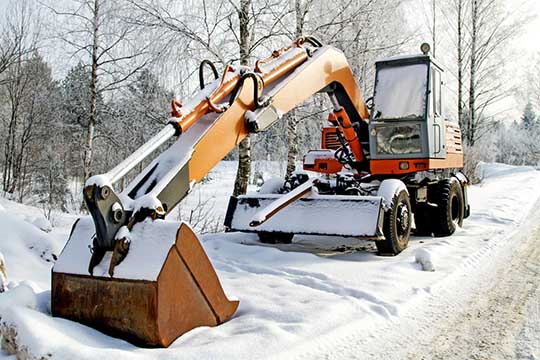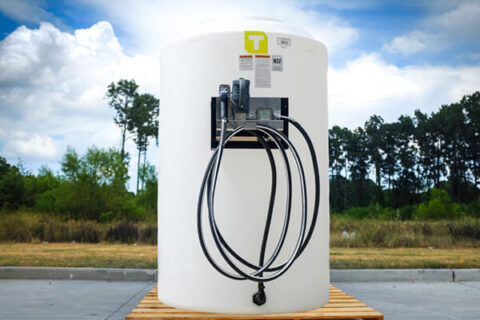Preparing Your Diesel Engine for Winter Conditions
Inadequate preparation for cold weather can make it harder for your car to start, as the battery, fuel, and other parts need the right temperature to work. Ignoring the weather might cause the car to break down and become unusable.
You need to understand the Winter diesel engine prep to get your car ready for safe winter driving since cold weather is quickly approaching. This is particularly true for those who operate heavy equipment and drive diesel vehicles, such as snow removal loaders, trucks, or cars; not only do you depend on your car to get the job done, but your workplace and the people you serve also depend on it.
Adequate Combustion
Diesel Engine for Winter can be equipped with a grid heater or a glow plug, which is an extra component added to the cylinder head to assist warm the air. It’s crucial to check these components before a cold snap since grid heaters and glow plugs can both malfunction.
Fortunately, you can keep your engine running all winter long by replacing them at a reasonable cost. For engines to function at their best, they must not only be heated enough to start, but also maintained at their operational temperature. When operating a diesel vehicle in extremely cold temperatures, such as below 5°F (-15°C), you should ensure that your block heater is properly stocked and operating.

Coolant Warmer
Although a block heater heats the engine block, diesel owners and operators also have the option of using a coolant warmer. With a coolant heater, such as one made by Webasto Heaters, the emphasis is on precisely maintaining the coolant at the proper temperature, which lowers maintenance costs, filter overloading, thermal cracking, and even fuel expenses.
The Coolant
In cold weather, your engine’s first line of defense is the coolant itself. Selecting coolant and coolant system protection may prevent a number of issues for your engine, including deposits, corrosion, and acidity. Fleetguard coolants are designed to suit the demands of many engine types, including diesel engines, and provide optimal protection against freeze-up and boil-over.
Examine your hoses, boots, and belts
Regularly inspecting your engine’s components is a good idea in general, but doing so especially before winter reduces the need for emergency repairs. When your rubber engine parts wear out, it can quickly lead to miserable moments while you wait for roadside help in the icy weather. As a part of Diesel winterization tips we advise checking your belts, boots, and hoses since rubber becomes brittle and quickly cracks when it gets cold.
When the car is not running, examine your belt or belts and search for any cracks in the rubber, particularly where the belt crosses over a pulley. Additionally, carefully inspect the belt’s edges for any ripped threads. It is advisable that you replace the belt if you see any signs of wear. As replacing a belt is typically a simple procedure, you don’t need to dedicate a whole weekend to it.
Warm Up
Another method for Cold weather diesel care in the winter is to warm up your engine before operating it. A helpful trick for preheating your engine before starting it is to utilize glow plugs. To guarantee that the car starts correctly, they aid in heating the fuel and air combination inside the combustion chamber.
In case you need to change your glow plugs during the winter, make sure you test them first. If they are cold or broken, they could not assist the car in starting.
You should switch on the engine and allow the dashboard light to glow for about 15 seconds in order to guarantee that the glow plugs reach the correct operating temperature. You can start the engine when the start light goes off. This lets you know when the glow plugs have warmed up sufficiently.
Final Words – Keep Yourself Safe This Winter
It is just as crucial to keep your car safe and comfortable during the very cold winter months as it is for you to dress warmly. In the worst case scenario, heavy machinery that isn’t ready for the cold can malfunction.
Though you pray it never happens, be ready should your car break down, become stuck, or stall and leave you stranded for many hours in subfreezing weather.
In the worst situation, remember these safety advices:
- Remain in your car. You should stay in your car, if possible, and not get out to find assistance if it stalls or stops operating. Wandering about in the chilly weather puts you at danger of becoming lost and losing heat quickly.
- Avoid using your car over extended periods of time. Even while it might be tempting to leave the engine running to get warm, driving a stalled automobile with the windows up can result in the deadly gas carbon monoxide building up.
- Put reflective indicators on your car or in its surroundings. By using bright markers, you may increase the visibility of your car and alert onlookers to your need for assistance.
Seeking further advice on preparing for winter? At Ricochet Fuel, we help you with more than Preparing diesel for winter, to maintain your construction equipment in good working order over the long winter.

